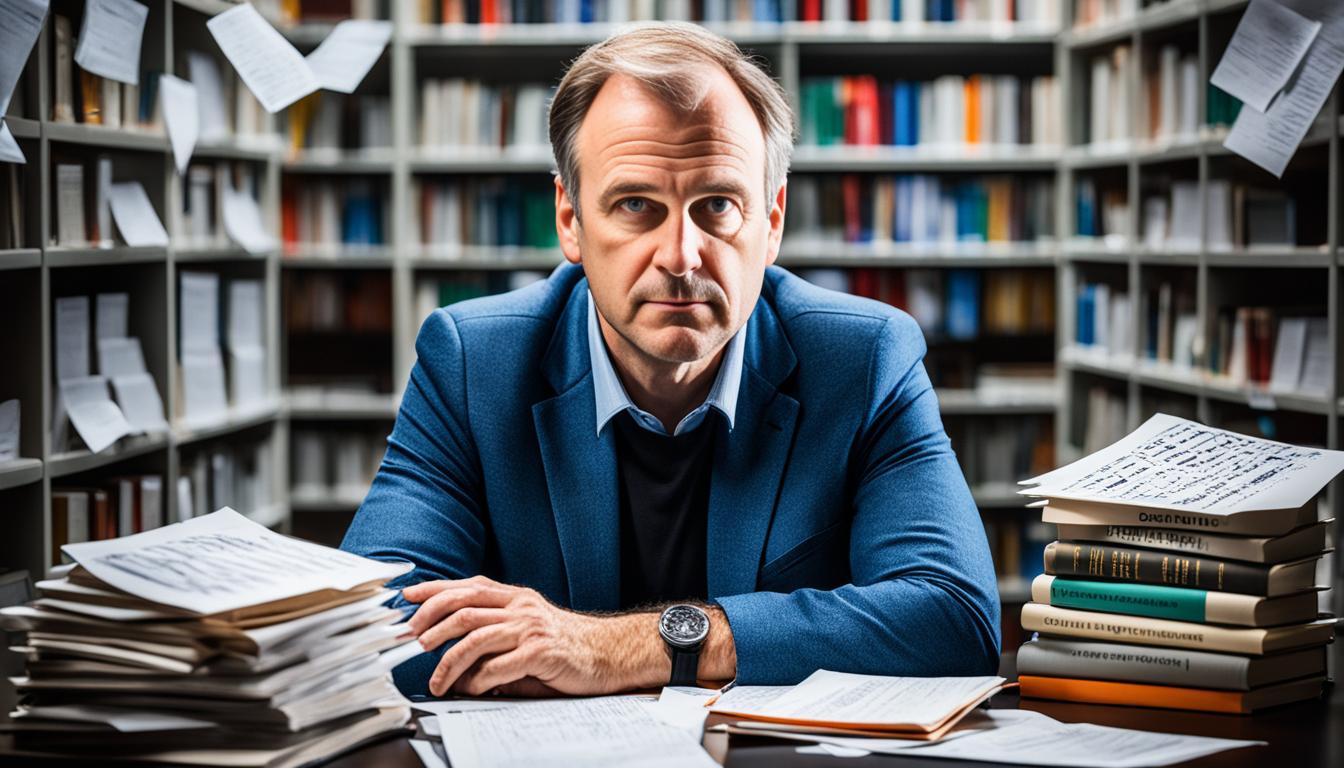In an increasingly complex world, we often find ourselves confronted with ethical quandaries that challenge our values and principles. Where do we turn for guidance when faced with these moral dilemmas? Enter “The Ethicist,” a trusted advisor dedicated to helping individuals navigate the intricate web of ethical decision-making.
The Ethicist is a beacon of moral philosophy, offering expert insights and impartial advice on a wide range of ethical issues. From navigating the workplace minefield to grappling with personal choices that test our integrity, The Ethicist provides a framework for ethical reasoning that empowers us to make informed decisions aligned with our core values.
Whether you’re facing a complex ethical dilemma or simply seeking to strengthen your moral compass, The Ethicist is here to guide you. Through thoughtful analysis and a deep understanding of ethical principles, this trusted resource will equip you with the tools necessary to confront life’s moral challenges head-on.
Key Takeaways
- The Ethicist provides expert guidance on navigating complex moral and ethical dilemmas
- Offers a framework for ethical decision-making grounded in moral philosophy
- Empowers individuals to make informed choices aligned with their core values
- Tackles a wide range of ethical issues, from the personal to the professional
- Serves as a trusted advisor for strengthening one’s moral compass
Ethical Decision-Making: A Framework for Moral Quandaries
In the realm of ethical reasoning, navigating the complexities of moral quandaries can be a daunting task. However, by adopting a structured approach, individuals can embark on a journey to uncover the right path forward. This section outlines a framework for ethical decision-making, guiding readers through the process of identifying the ethical issue, considering multiple perspectives, and evaluating the moral principles involved.
The first step in this framework is to recognize the ethical issue at hand. This involves carefully examining the situation, identifying the key stakeholders, and understanding the potential consequences of different courses of action. By clearly defining the ethical dilemma, individuals can begin to explore the nuances of the problem and consider the implications of their decisions.
The next step is to consider multiple perspectives. Ethical reasoning requires an understanding of diverse viewpoints, including those that may challenge one’s own beliefs. By exploring alternative perspectives, individuals can gain a more holistic understanding of the moral quandary and identify potential blind spots in their own reasoning.
- Empathize with the experiences and concerns of others involved
- Seek out expert opinions and external resources to broaden your understanding
- Identify any biases or assumptions that may be influencing your perspective
Finally, the framework encourages individuals to evaluate the moral principles at stake. This involves carefully weighing the potential outcomes against ethical guidelines, such as the principles of justice, beneficence, and respect for autonomy. By aligning their decisions with these core ethical tenets, individuals can navigate the moral quandary with greater confidence and clarity.
“The true measure of a person is how they treat someone who can do them absolutely no good.”
– Anne Lamott
By following this structured approach to ethical decision-making, individuals can navigate the complexities of moral quandaries with a greater sense of ethical reasoning. This framework empowers us to make informed choices that uphold our values and contribute to a more just and compassionate world.

The Ethicist: A Guide to Ethical Reasoning
In the realm of moral philosophy, The Ethicist serves as a beacon, guiding individuals and organizations through the intricate web of ethical dilemmas. This role involves drawing upon a deep understanding of values and principles, as well as a nuanced approach to ethical decision-making.
At the heart of The Ethicist’s guidance lies the pursuit of moral reasoning. By examining complex situations through the lens of moral philosophy, The Ethicist helps unravel the ethical considerations at play, empowering readers to navigate these challenges with clarity and conviction.
The Ethicist’s approach to ethical reasoning often involves the following steps:
- Identifying the core ethical principles at stake, such as justice, autonomy, beneficence, and non-maleficence.
- Carefully analyzing the potential consequences of different courses of action, weighing the benefits and risks to all stakeholders.
- Considering various ethical frameworks, including deontology, utilitarianism, and virtue ethics, to inform the decision-making process.
- Engaging in critical thinking to explore alternative perspectives and uncover potential biases or blind spots.
- Ultimately, synthesizing the insights gained to arrive at a well-reasoned ethical conclusion that aligns with the individual’s or organization’s values and principles.
By guiding readers through this methodical approach to ethical reasoning, The Ethicist empowers individuals and organizations to make decisions that not only adhere to moral standards but also contribute to the greater good.
“Ethical decision-making is a complex and nuanced process, but with the right framework and guidance, we can navigate even the most challenging moral quandaries.”
Through this comprehensive approach, The Ethicist ensures that the values and principles that underpin our collective sense of morality are upheld, fostering a more ethical and just society.

Real-World Ethical Dilemmas: Case Studies and Analysis
In this final section, we delve into real-world examples of ethical dilemmas, exploring how the principles of ethical reasoning can be applied to navigate these complex situations. By examining specific case studies, readers will gain a deeper understanding of the practical application of ethical decision-making and the valuable insights offered by The Ethicist.
One such case study involves a medical researcher who discovers a groundbreaking treatment for a rare disease, but the cost of producing the drug is prohibitively high. The researcher must weigh the ethical implications of pricing the treatment out of reach for many patients in need, against the potential financial loss that could jeopardize future research and development. The Ethicist would likely encourage the researcher to explore creative solutions, such as tiered pricing or partnerships, to ensure the treatment is accessible to those who need it most, while still maintaining the financial viability of the research program.
Another case study explores the ethical dilemma faced by a corporate executive who uncovers evidence of unethical business practices within their own organization. The executive must decide whether to report the findings to the authorities, potentially risking their own career, or to remain silent and protect the company’s reputation. The Ethicist would likely advise the executive to prioritize their ethical values and responsibilities over short-term personal or organizational interests, and to take the necessary steps to address the unethical behavior, even if it comes at a personal cost.
FAQ
What is The Ethicist and how does it help navigate moral dilemmas?
The Ethicist is a professional resource that provides guidance and advice on navigating complex moral and ethical quandaries. It draws upon principles of moral philosophy to help individuals and organizations make sound decisions that align with their values and ethical standards.
What is the role of ethical decision-making in everyday life?
Ethical decision-making is a crucial framework for navigating the moral challenges we face in our personal and professional lives. By considering multiple perspectives, evaluating ethical principles, and weighing the potential consequences of our actions, we can make more informed decisions that uphold our values and do the right thing.
How does The Ethicist approach ethical reasoning?
The Ethicist utilizes a deep understanding of moral philosophy and ethical frameworks to provide guidance on complex ethical dilemmas. By examining the nuances of each situation and considering the various moral principles at play, The Ethicist helps individuals and organizations make well-reasoned decisions that are grounded in ethical principles.
Can you provide examples of real-world ethical dilemmas and how The Ethicist would analyze them?
The Ethicist frequently addresses real-world ethical dilemmas, offering insights and analysis on how to navigate challenging situations. By examining specific case studies, The Ethicist demonstrates the practical application of ethical decision-making, highlighting the importance of considering multiple perspectives, weighing the potential consequences, and upholding core values and principles.
What are the key principles and values that guide The Ethicist’s approach?
The Ethicist’s approach is rooted in a deep understanding of moral philosophy and a commitment to upholding core ethical principles such as honesty, fairness, respect for human dignity, and a sense of social responsibility. By carefully considering the nuances of each situation and the potential impact of decisions, The Ethicist provides guidance that helps individuals and organizations make ethical choices that align with their values.




